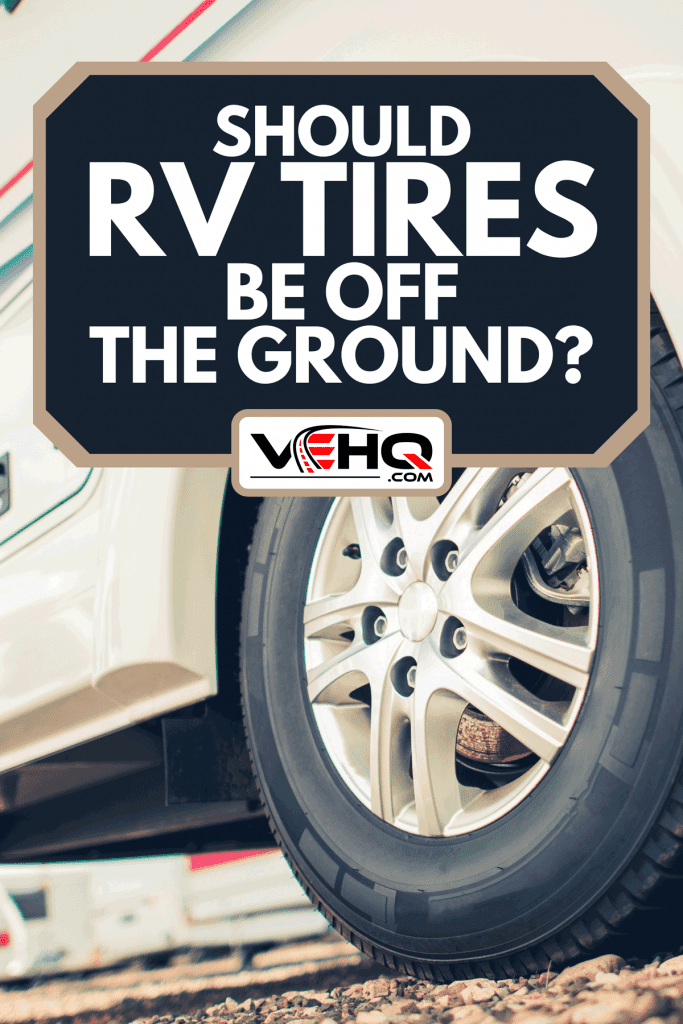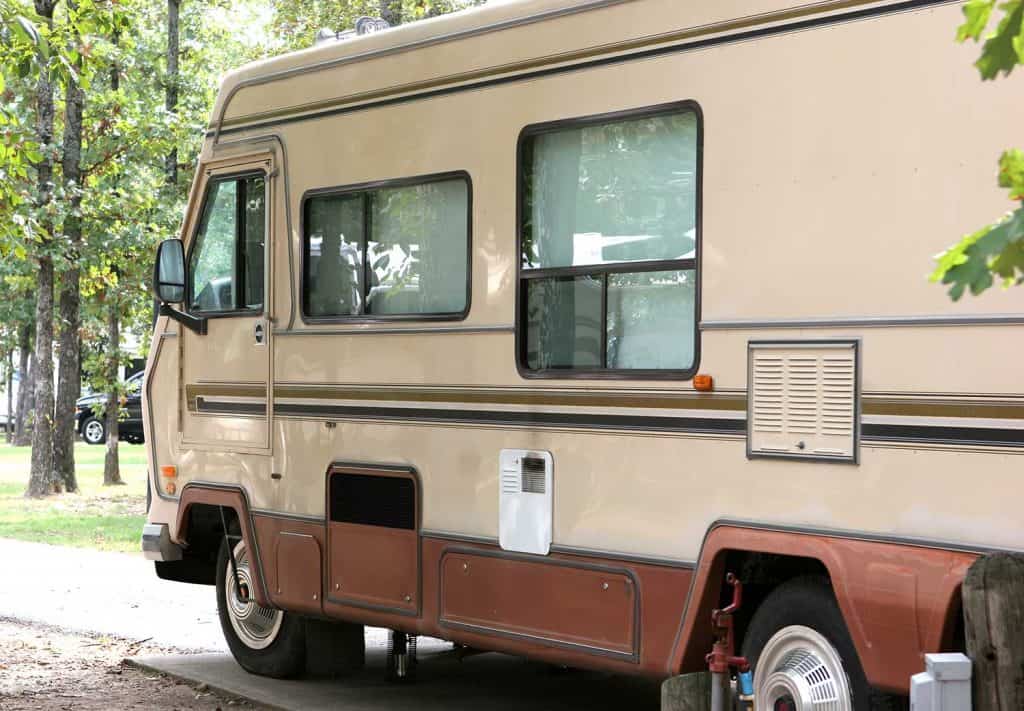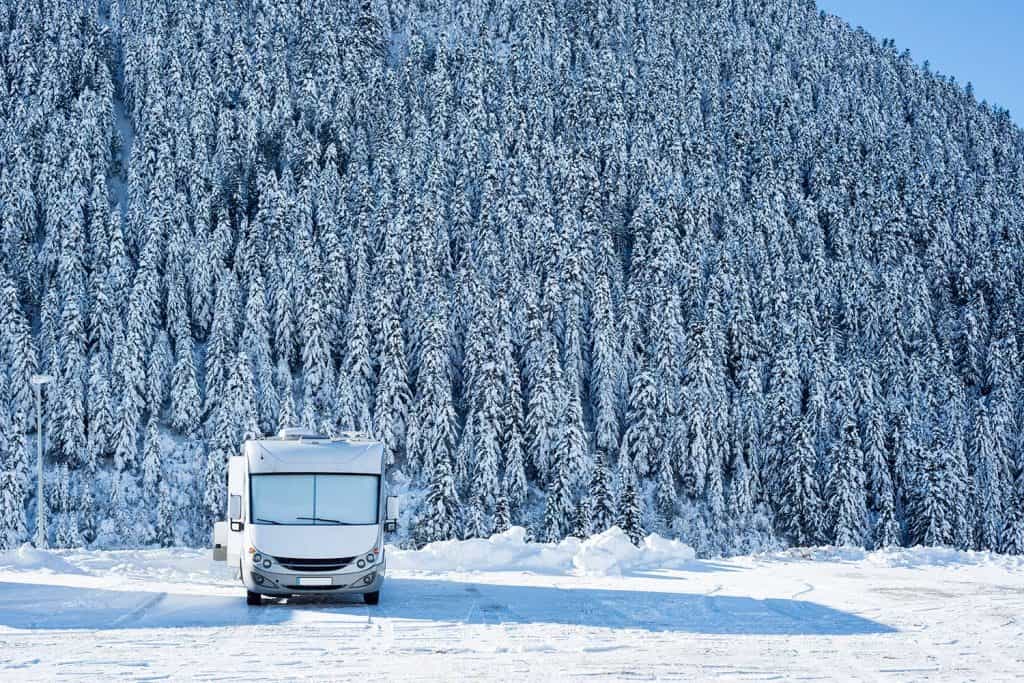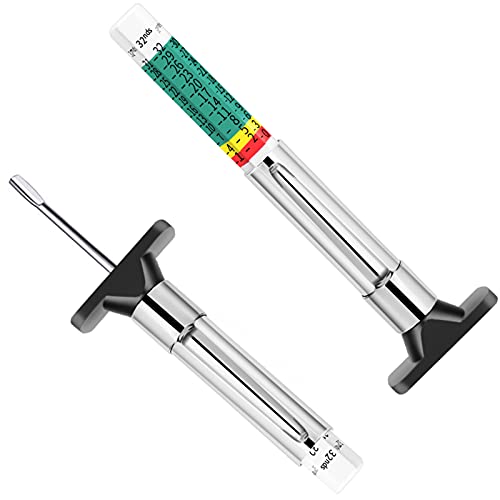Whether it's time to store your RV for the winter season or another situation that calls for you to stop using it, there are some considerations to make. More specifically, should the RV tires be off the ground? After all, the idea of supporting a giant vehicle in a single spot for long periods can raise some concerns. So, if you want to get to the bottom of this issue, let's take a look at what others have to say!
In general, the answer depends on the situation—and you should always err on the manufacturer's recommendations for your RV. If you're planning to store it for an extended period, between 1-3 months, having the RV tires off-ground would be fine. Still, some RV users suggest not completely lifting the tires off the ground because doing so potentially causes damage to the tires or the RV frame.
There's still more to cover on the topic of RV tires. If you're new to owning an RV, it can get a bit confusing knowing the proper way to store one. As the answer suggests, the tires shouldn't be off the ground for long periods. Instead of lifting them off the ground, there is some suitable terrain to store your RV. If you'd like to learn this and more, keep reading ahead.

The Case for Off-ground Tires
So, let's start with what would warrant the need to worry about keeping the tires off-ground. It's an understandable concern. Like standard cars, if an RV sits idle in storage for too long, the tires become susceptible to develop flat spots. A solution for this problem in conventional vehicles is to have the tires rest on a soft surface or other various methods.
RVs present a different case. They're mobile vehicular homes that you can't park in just any garage. So, you'll see various surfaces that could mean trouble for your RV tires.

Follow the Manufacturer's Instructions
Before we get into specifics, it's equally important to consult the guidelines of your RVs leveling system. They might advise against lifting your RVs tires off the ground.
In many forum users' experiences with a Power Gear leveling system, the manufacturer warned against lifting the tires off the ground. As they claim, it applied to the front and rear tires.
In that case, always follow the manufacturer's instructions. Failing to do so could lead to potential problems down the line.
Leaving the Tires Off-Ground
However, some users reported no hiccups when they did lift the tires off the ground. But, they did it in a particular way. As mentioned above, lifting the tires off the ground can lead to some damage to your RV. One source suggests that RVs are not meant to be hung from the frame of their mounting hardware.
Still, to circumvent this, they support the RV with wooden blocks positioned under the frame on both sides of the axle. What manufacturers specifically advise against is supporting the RV under the axle. Is it a project worth investigating? Some users seem to think so.
Although anecdotal, some claim this is the way they store their RVs for the winter. In that regard, it's up to you if you want to take the weight off your RV wheels. However, this isn't the only way to prevent flat spots. There are still more options for you to consider!
What Do I Put Under My RV Tires?

Ensuring your RV's tires are in good shape for the next season requires more effort than your standard vehicle. You'll most likely have to park the RV in an area outside. Meaning, the tires will face a variety of conditions that can affect their lifespan.
Some surfaces could spell disaster for the quality of your tires. As one forum user suggests, oil from the asphalt or moisture from sand/dirt is something you want to avoid exposing to your tires. The reason is that these create an environment that encourages your tires to decay faster.
So, the solution to this problem is to put something under the tire. This way, it isn't in direct contact with an unsuitable surface. Users suggest using plywood, Teflon sheets, plastic mats, concrete pavers, and more.
In general, you should create a barrier between the tire and the surface of the ground. Additionally, try to avoid resting the tires on surfaces that contain oils or other chemicals that can aid in tire rot.
Should RV Be Covered for Winter?

Of course, the tires aren't the only aspect you should pay close attention to. If you're storing your RV away from the winter season, you'll also want to think about the RV itself. It's a big vehicle in the open that's exposed to many elements throughout a few months.
So, covering the RV should be another consideration you have to make. This step is crucial if you don't have a garage large enough to fit an RV. Still, you might make a few trade-offs between renting a storage space and purchasing covers for your RV.
One of the cons of purchasing a cover is that it can get expensive! The other disadvantage is that it can be a pain to put on and take off. However, the advantages of covering the RV outweigh the disadvantages.
An RV cover will allow you to:
- Protect your RV from the elements.
- Protect the paint of the RV and the tires from UV radiation.
- Make a one-time purchase of an RV cover over renting a storage space for the vehicle.
Click here to see this RV cover on Amazon.
How Long Do RV Trailer Tires Last?
The lifespan of your tires will depend on how well you treat them. As a general rule of thumb, RV tires should last anywhere between 3-6 years. That timespan decreases with frequent RV use. Regardless of how long it can serve, you'd still want to inspect the tires for any deformities.
Click here to see this tire tread depth gauge on Amazon.
Check the tire tread using a tire tread gauge or using the penny/quarter tire tread method. Identify any cracks or punctures and replace any parts if necessary. Finally, the last determinate factor is the age of the tires. Although they can last as long as five years, you might have to consider changing them out for a new set after three years.
If your tires have surpassed the three-year mark, have a professional inspect the tires. This way, you can ensure you don't end up with any accidents on the road due to faulty tires.
How Can I Make My RV Tires Last Longer?
Like most things in life, we try to stretch out the duration of specific items' service. In the case of RV tires, you can make them last a decade if you're attentive enough! But, ensuring they reach that long of a lifespan requires good care.
As some suggest, you can extend the life of your tires by:
- Don't keep the RV idle for too long. At most, keep your RV in storage for six months. After this period, you'll want to start using it.
- Inspect the tires. Make sure to inflate them properly. This step is also crucial in the winter months when you're storing the RV away.
- Refrain from using alcohol or petroleum-based cleaners.
- Use the RV frequently. This way, it won't stay in one area, which increases the likelihood of flat spots.
How Many Miles Should RV Tires Last?
Mileage and the lifespan of a tire go hand-in-hand. In this respect, the answer will also be it depends. How well you treat the tires will determine how many miles you will get out of them. Tires that are in frequent use and well taken care of can last about 12,000 miles.
However, if you allow the RV to stay idle for long periods, the tires might not even last 4,000 miles before it needs a replacement. So, getting the most of them will heavily depend on the user's side.
How Do You Keep RV Tires From Dry Rotting?
Preventing dry rot from occurring on your RV tires, you'll have to pay close attention to what a tire requires. Let's go over brief guidelines of what you should and shouldn't do:
- Inflate your tires properly.
- When you're storing your RV, try to reduce sunlight exposure on your tires. You can do this by covering them.
- If possible, keep the RV in a climate-controlled environment. Tires will not do well in high temperatures. Tires last longer when they're in a cool and dry area.
- Use your vehicle frequently. All vehicle tires benefit greatly from performing their intended purpose. If you're still not ready to use the RV, drive it at least once a month to ensure natural oils in the rubber spread evenly.
Final Takeaway
Whether you're a first-time RV owner or are looking for the best ways to maintain your RV, familiarizing yourself with the guidelines is the first step towards a well-maintained vehicle. The tires are one of the most crucial components of your RV. In that respect, we hope you found the information above helpful enough to give you ideas on how to take care of your tires!
Before you go, do you have other RV concerns? Are you running into some hiccups with it? If your RV's electric steps aren't working, check out our post here for help. Until next time!


